Making up just 5 percent of the music tech industry, women are vastly underrepresented. There is a long way to go to achieve gender parity across the board. However, as Chandler Shortlidge discovers, welcome and overdue change is in the air.
Great strides have been made across the electronic music industry in recent years to bring more visibility and opportunity to women and non-binary artists on stage. Major drink brands have launched entire campaigns around the issue, helping to highlight the work done by groups like female:pressure, Keychange and Discwoman to make lineups gender equal. And while there’s still much work to be done, few would argue that the efforts have been in vain. But beyond the stage, and into major audio production and engineering studios, women are still greatly underrepresented, currently making up just 5 percent of the music tech industry.
The question of why this imbalance exists has been well covered and is seen by some in the industry as counterproductive. Focusing on the disparity itself only “reinforces the message that women and non-binary people working in sound are an anomaly,” says Kirsty Gillmore of SoundGirls, a non profit organisation founded in 2013 with the mission of inspiring and empowering the next generation of women in audio. Instead, women like Gillmore think the message now needs to be focused on solutions.
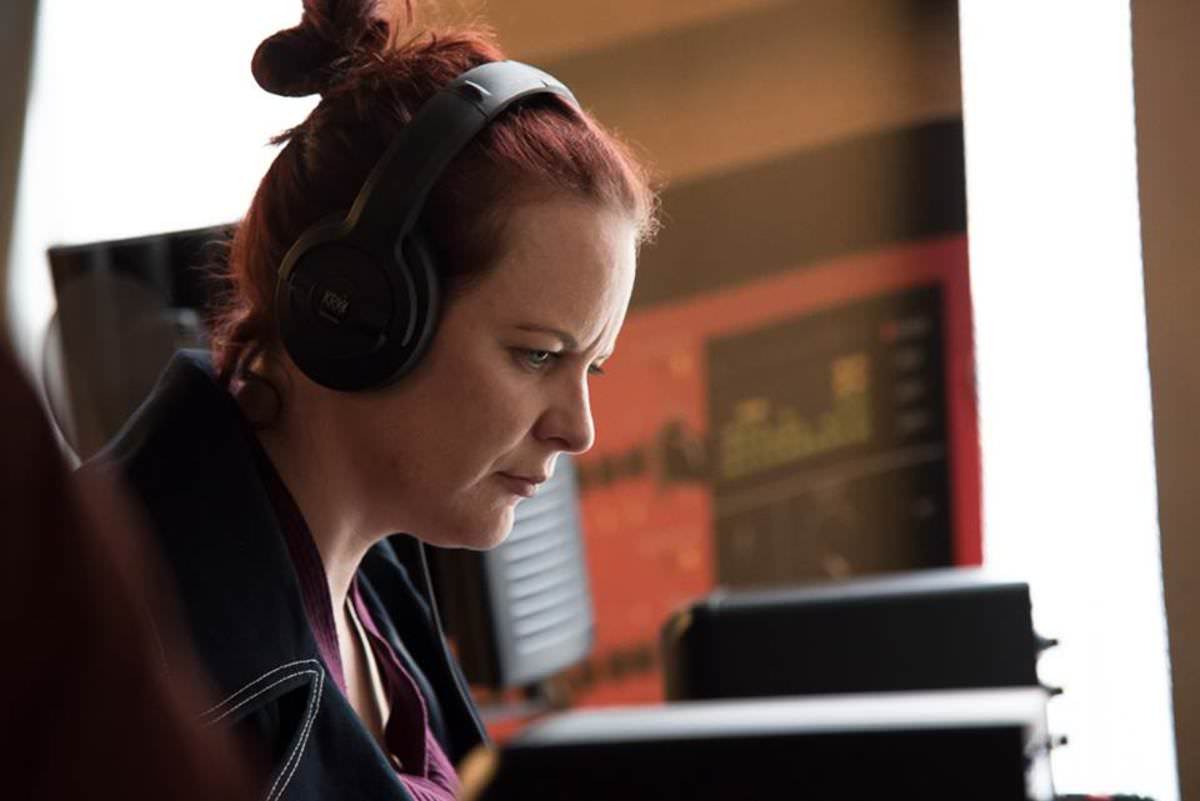
Kirsty Gillmore, photo by Issac Peral
Gillmore has worked professionally in the sound industry for 17 years. She graduated in New Zealand in 2001, and says she was one of only two women in her class studying sound engineering. “Sound design wasn’t really a known thing in New Zealand,” she says. So she moved to the UK, earning a job at the BBC, where she worked for eight years in a variety of sound-related roles. Now she does sound design for theatre and opera, where she’s responsible for everything you hear. “So that’s everything from the speaker selection to microphone selection to the soundscapes and sound effects,” she says. She also creates soundscapes for audio drama, where she shapes and selects sounds before mixing it all together. As for SoundGirls, Gillmore works on a volunteer basis as the European co-director and UK chapter head.
With over 6,000 members and chapters worldwide, SoundGirls first launched a directory for women in audio two years ago. It was a place where anyone looking to find a woman for their engineering or production needs could find one. But early this year, Spotify reached out to SoundGirls about updating the directory in the hopes of giving it more visibility. “Spotify has made an ongoing commitment to making strides towards equity in the industry,” Gillmore says. Together, they launched The EQL Directory, a revamped version of the original database that’s more dynamic and user-friendly.
You can't keep saying that there's no female producers because you just don't know them. We know them, and we gather them here.
“A lot of what was heard in the industry was, ‘oh, we really wanted to hire a woman engineer but we didn’t know where to find one,’” Gillmore says. But by creating a focal point to easily find female and gender non-conforming sound engineers, designers, producers, mixers and editors, Gillmore hopes the days of claiming ignorance will soon be over. “This is a way of saying, actually, there are a lot of women working in the industry, and now we’ve made it easier for you to find them, so you don’t have that excuse anymore.”
This ethos is echoed closely by Anna Ingler, who helped establish the Upfront Producers Network. Like its name implies, the Stockholm-born network is producer orientated and helps connect and highlight non-male artists in pop, electronic music, and occasionally hip-hop. Artists come mainly from Stockholm, but also Berlin, London, Finland and Denmark.
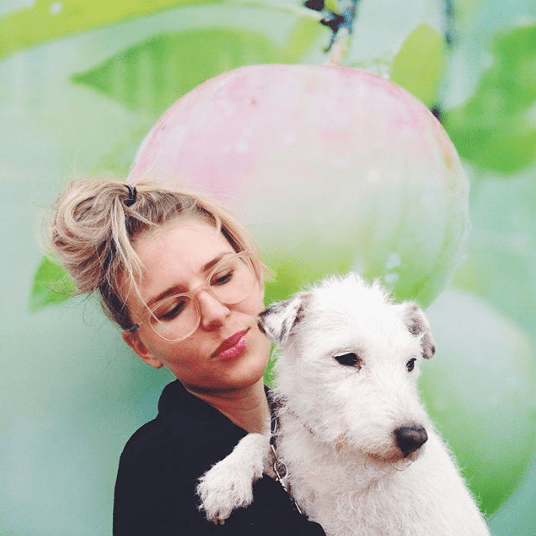
Anna Ingler
“It’s a way to tell the industry, look, there’s a lot of producers here,” Ingler says. “You can’t keep saying that there’s no female producers because you just don’t know them. We know them, and we gather them here.”
Anyone wanting to join the network must apply. Ingler says this is for quality control, so anyone looking to hire a producer through the network already knows the artists have been professionally vetted. The network also serves as a way to connect non-male artists who have shared backgrounds. “They have experiences with sexism, or just people not believing in them or being degrading in some way,” Ingler says.
This isn’t universally true, of course. But male-dominated production and party crews are already a backbone of the electronic music industry, in part because men already gather in their own spaces. However, analogous female and non-binary crews are still rather rare. By meeting other like-minded producers, they can develop their own creative spaces where they feel safe, learn from one another, have fun and grow as professionals. “To get jobs or to become a professional producer, you need that kind of time to develop and refine your skills,” Ingler says. “I think it’s important to do that in a safe space.”
SoundGirls members are already audio professionals, but many women listed in its original directory obtained further work because of it. And with EQL, Gillmore expects that only to improve. Now she says the focus should be on increasing the visibility of women and non-binary professionals across the entire audio industry so that women and girls who are less experienced have someone they can look up to. “I know when I was starting out in sound, there very few female role models,” Gillmore says. “They were out there, they just weren’t visually represented.” Famous female engineers are still rarely used as spokespeople for audio equipment advertisements, or listed amongst many manufacturers’ famous clients when touting the quality of their brands. “I would like to see those manufacturers pledge to have gender equity on their websites,” Gillmore says. Women and non-binary people should be given equal representation in interviews with audio publications too, so future generations can clearly see someone like them they can aspire to.
“You can’t be what you can’t see,” Gillmore says. “We obviously want younger women and girls to come into the industry, and if they look at these publications and manufacturers and all they see are men, then it’s difficult to then go, well, there’s a path for you there.”
Saffron Laura Lewis-Paul also wants to give women a path. Though initially, her background wasn’t in music or technology, she’s long been interested in making creative spaces more diverse. But while working for Creative Youth Network, a youth creativity outreach program, she set up a “very small” label, and soon noticed the music industry’s lack of diversity. “[It’s] not a very diverse industry at all,” she says. And music technology even less so.
So in 2015 she launched Saffron, a music label and artist development program with six to eight week courses in DJing, Ableton Live, Logic and sound engineering, aimed at teaching women the skills necessary to empower them in traditionally male spaces, like music studios. “It’s a difficult place to hold yourself, to navigate a career,” Lewis-Paul says. “By giving women those skills, they can reclaim creative control over their work, and know exactly what needs to be done to make their careers the best they can be.”
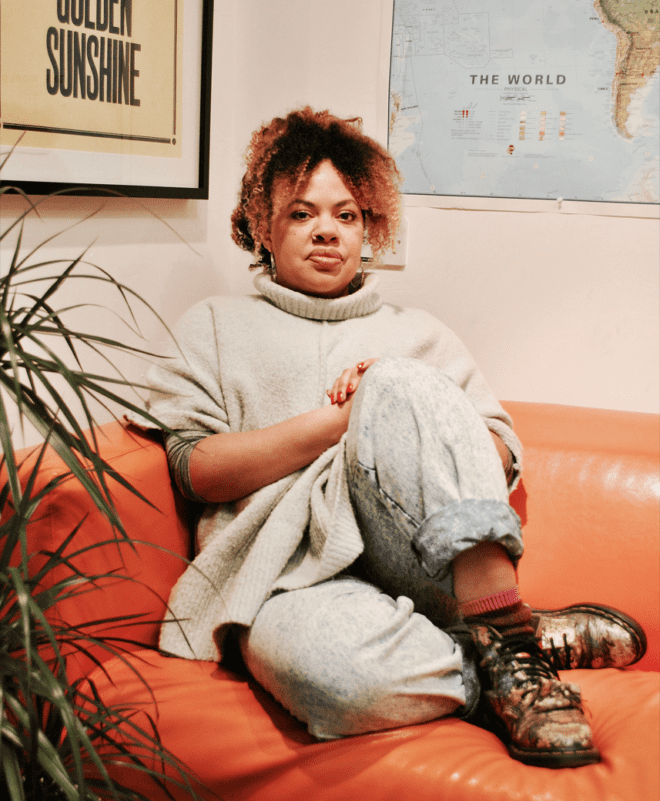
Saffron Laura Lewis-Paul
Heavyweight studio veterans like Katia Isakoff agree. “Walking into a professional recording studio armed with session files and the necessary skills and confidence to communicate one’s technical and creative ideas can be very empowering and liberating,” she says. A veteran composer and producer, Isakoff owned a commercial studio in West London for 12 years, composed and produced for Mute Records in 2002. She also co-owned a commercial studio which she co-designed and built, and her lengthy resume is dotted with a host of other equally impressive achievements.
You can't be what you can't see.
Today, she works in experimental avant garde electronic music using hardware synthesisers, voice, DAWs, Theremin and other hardware and software. She knows better than most, how powerful professional knowledge can be when working with a recording or mix engineer. “Especially for a self-producing artist—it can indeed help reclaim or maintain creative control over their work and career,” she says.
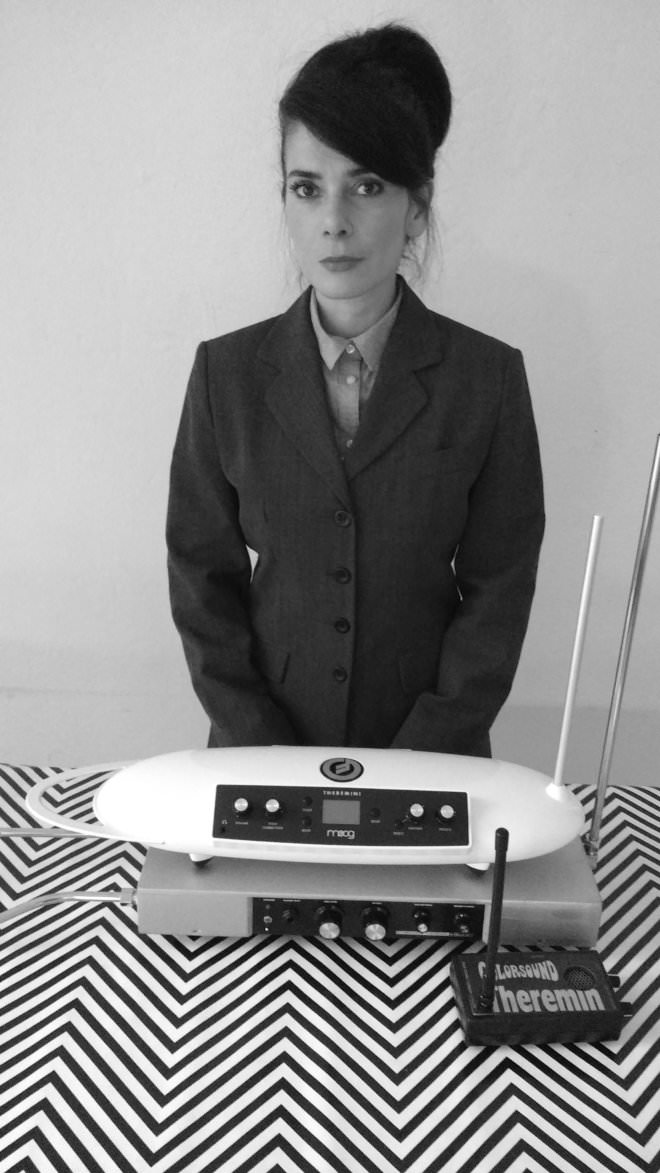
Katia Isakoff
Last year, Lewis-Paul says roughly 15 percent of Saffron graduates went on to study higher education in audio at dBs Music—a production, sound engineering and electronic music performance school with campuses in Berlin, London and Bristol. It’s a Saffron partner, and where Lewis-Paul’s students learn the tools of the trade. Lewis-Paul is hoping she’ll soon be able to further track how many of her students then go on to work professionally in the music industry, but that’s still a work in progress.
Right now, her focus is on encouraging new students into the program, and organically developing the Saffron artists who are starting to show potential. “It’s a slow process, and I think I’m okay with that,” she says. One graduate of Saffron’s DJ program is now playing on Worldwide FM. And while it might be easy to try and quickly push her up through the ranks, Lewis-Paul says it’s “really important not to skip over some of those processes in the journey.”
When it comes to encouraging women into Saffron’s classrooms, Lewis-Paul says DJ classes fill up almost instantly. She thinks this is due to the high visibility of women on international and local DJ circuits. “In terms of what we’ve created in Bristol, there are women on nearly every lineup,” she says. But studio work is done behind the scenes, so “you can’t see them being celebrated,” she says. Which is why she thinks EQL is so important, closely echoing Gillmore’s “you can’t be what you can’t see” mantra.
“You can’t see there are other people like you going into these engineering positions,” Lewis-Paul says. “And there’s a fear with that where you might think, ‘well that’s going to be intimidating. It’s going to be men. If I’m going to have to spend more than a day in that environment, I’m going to feel vulnerable.’” But with the EQL database, women can see that there are people like them in those behind-the-scenes roles who they can connect with. “It’s about having a community and feeling supported in what you’re doing and what you want to go into so that you’re not the only one,” she says.
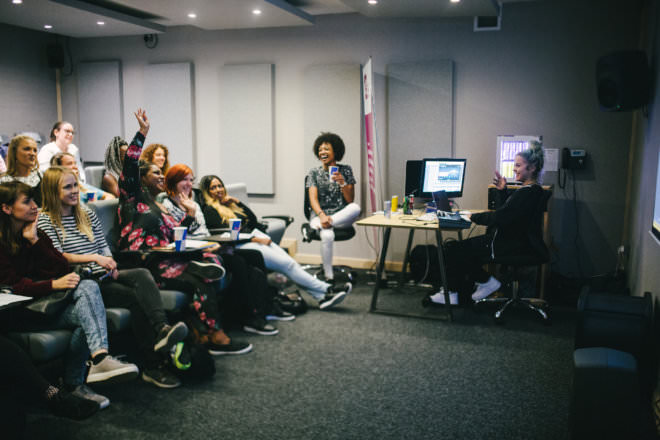
Saffron’s Masterclass. Photo by Rianna Tamara
As for the future of women in audio, Gillmore says she’s optimistic. “Well I have to be, really,” she half-jokes. In terms of actual numbers of women working in audio, “there’s a long, long way to go.” But there is more awareness, she says, and a willingness to do something about the gender imbalance. That includes initiatives like the EQL Directory, Girls Make Beats—an American school similar to Saffron—and Red Bull’s Normal Not Novel campaign, a monthly series of workshops for women led by
female electronic producers, engineers, and DJs. And although she’s heard the gender imbalance hasn’t greatly improved in her New Zeland class since 2001, she’s also heard about post-production studios in Australia that are half women. Things are improving with manufacturers and the media too. “ProSound News Europe does a regular podcast about women in sound, and they’re very good at featuring equal numbers of sound engineers, designers and producers,” she says.
As for Lewis-Paul, she thinks change needs to start even earlier, by erasing antiquated gender stereotypes as young as possible. “Around 13 to 15 years old, a lot of girls can start to lose their confidence and not want to go into some of those tech subjects,” she says. “So it’s about education starting from a young age, and continuing that so that there isn’t a drop off [in interest].”
With more focus on early education, an emphasis on highlighting female and non-binary role models, and the continued success of empowering networks and education programs, a large and lasting gender shift in the audio industry does look set to happen. Which Upfront’s Anna Ingler says is something we should all be excited for. “I see equality more like a resource than a problem that we have to fix,” Ingler says. “I mean in a company, if you have a diverse staff, you’re going to have different perspectives of a problem and you’re going to solve that problem better. It’s the same thing with creating music. If you have a more diverse, creative team, you’re going to come up with a more creative product.”
Chandler Shortlidge is a dance music journalist based in Berlin. Follow him on Twitter.
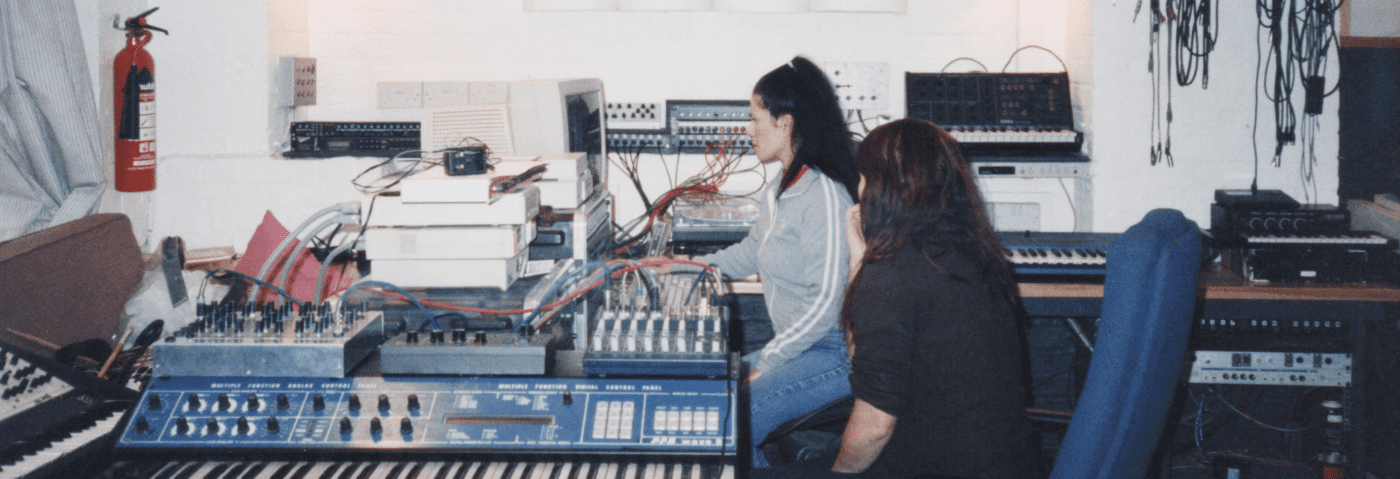
07.23 AM
That’s excellent, but striving for parity is an artificial, ideology based concept.
Equal opportunity and non-discrimination is what we should be striving for. Any negative discrimination should be publicised and condemned.
Talking about the imperative parity only creates a feeling of guilt on one side and oppression on the other.
03.07 AM
Problem??? WTF does that even mean? Art is something YOU “choose” to do… You guys lost my respect.
03.11 AM
Lol! These Women Are FIXING THE PROBLEM!! …omg, i thought this was underground etc.
03.14 AM
An SJW has obviously found there way into the editors chair at attackmag i guess. Im turned off.
06.38 PM
YAWN. There isn’t a “gender problem” in music. People have different interests. Why is it there aren’t many female construction workers ? Why aren’t there more male nurses ? It’s not like women or non-binary people are actively surpressed or refused entry from pursuing a career in the music business (or being a DJ at music festivals). It’s all about CHOICE. You can’t just force someone into developing more interest in a specific field, just because you think there should be working the same number of women and men in that specific field. That’s just ideology driven nonsense. Geez.